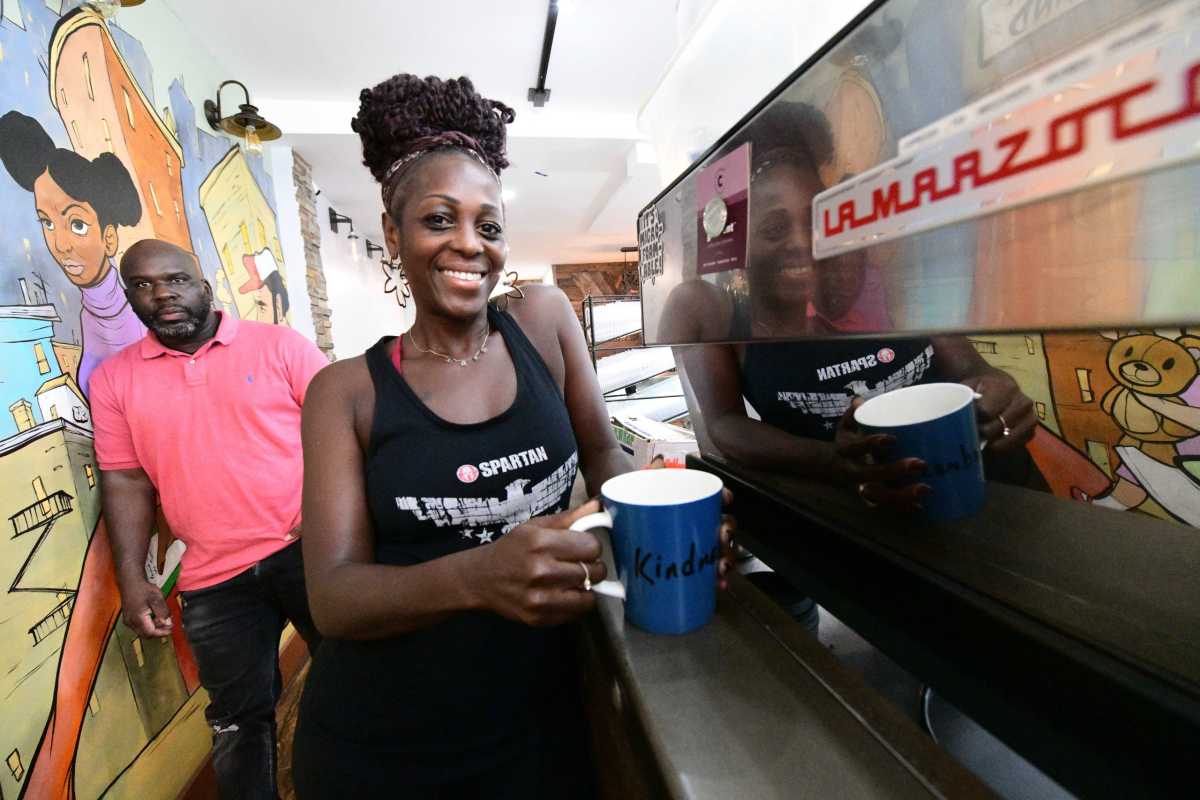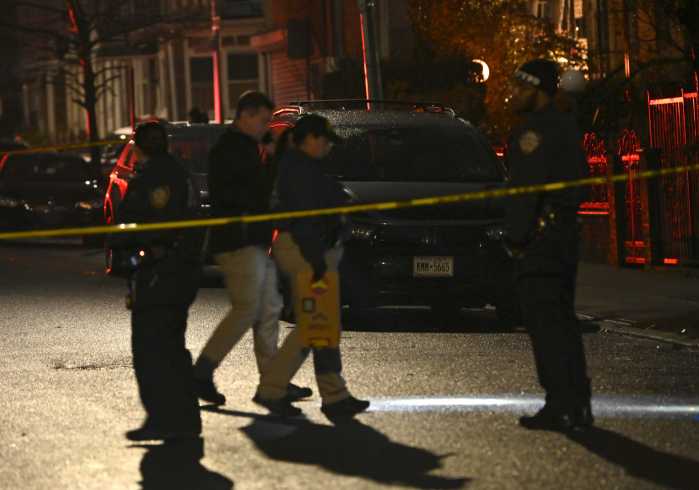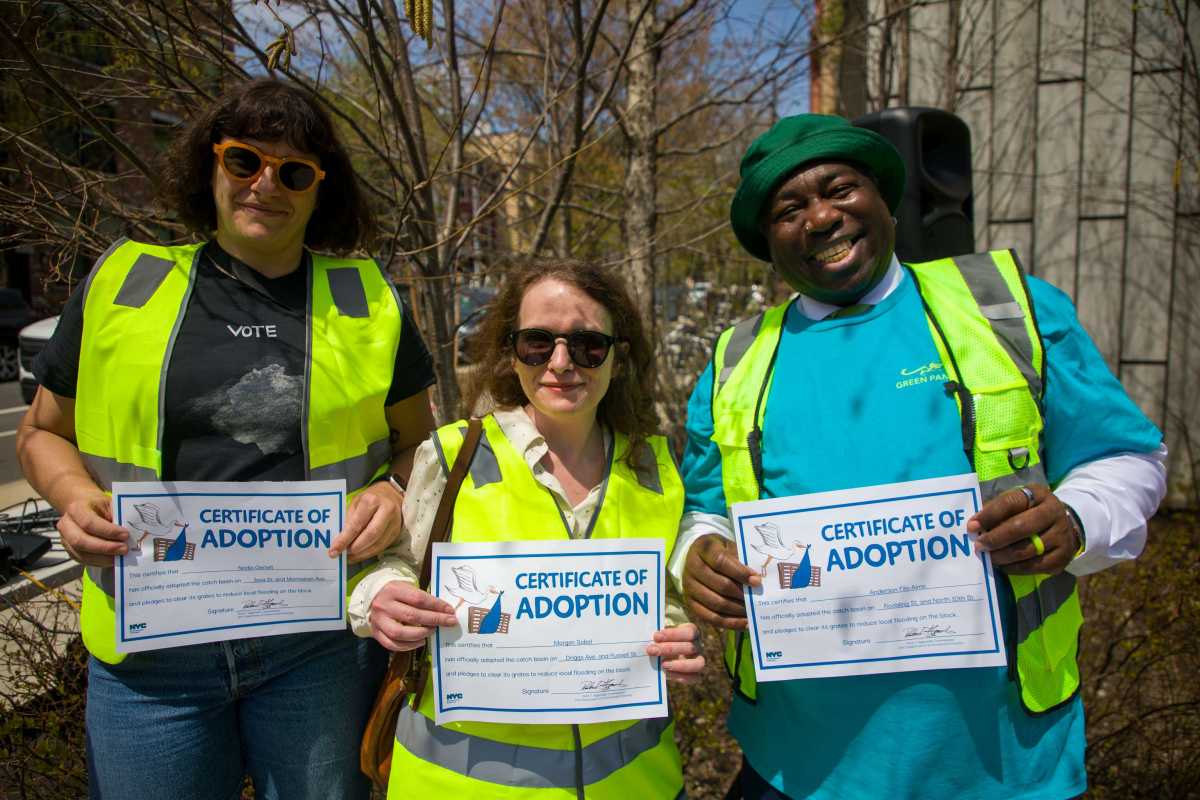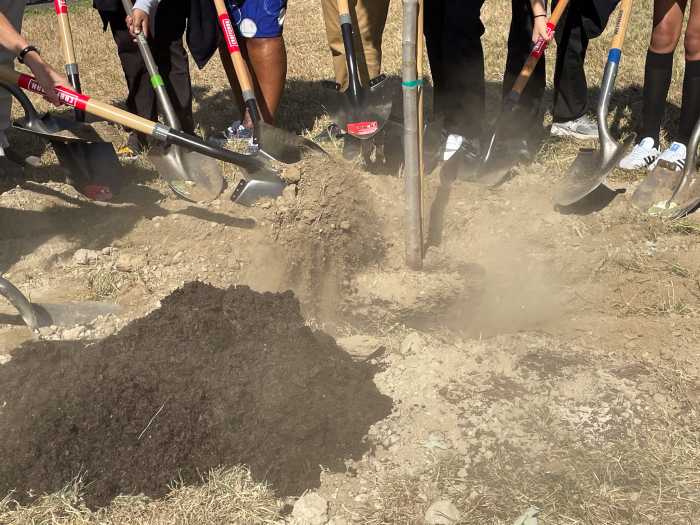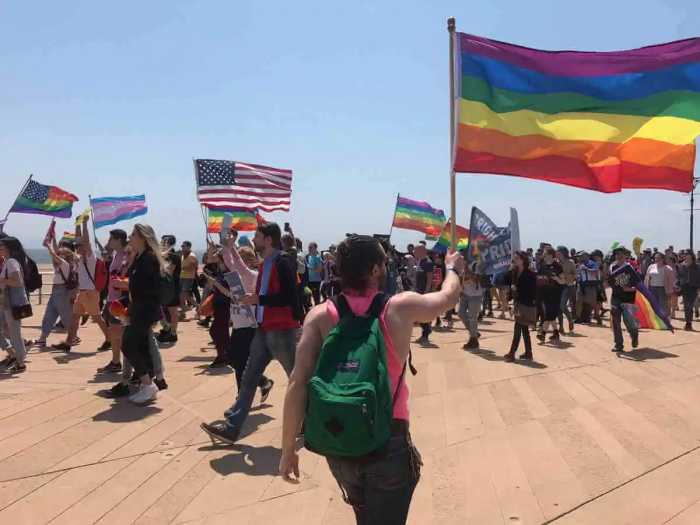
For Kenyatta ‘Kymme’ Williams-Davis and her husband Raymond Davis, the survival of their Brooklyn business was an afterthought as COVID-19 ravaged their family, friends, and customers at the height of the pandemic.
Their cozy little coffee shop, the Bushwick Grind on Whipple Street, was shuttered for months when the virus swept through the city. But soon, they realized that closing was the least of their problems: Kenyatta, her family, and friends all came down with the contagion.
That began an odyssey of dealing with both myriad health issues and the economic fall-out of the pandemic that remain an ongoing challenge. But Williams-Davis says it taught her valuable lessons that she has applied to her life and business going forward – she has strength through her family a spirituality to make things work.
Though the first confirmed coronavirus case didn’t occur until March 1, it’s believed that the virus was already sweeping through the city toward the end of February. Tens of thousands became ill; more than 20,000 died in New York City from the contagion. But the virus hit Black and Brown communities the hardest.
There are all kinds of theories behind why that happened, but Williams-Davis believes that her community was more vulnerable to COVID-19 because many couldn’t take better care of themselves. Yet she thinks that some good can come from the tragedy.
“I think there is a purpose for all that happened – it’s hard to fight through unless you have purpose,” Williams-Davis said with a smile in her shop decorated with a mural representing her community.
Health fight takes family lives
Williams-Davis recalled that both her mother and father became sick with COVID-19. Both parents were diabetic, with her father the most vulnerable with failing kidneys undergoing dialysis, diabetes, and heart issues.
Her mother became sick first and despite her own diabetes, she survived COVID-19. Her father James ‘Hoppo’ Williams, at age 64, was far worse and was hospitalized in a negative pressure room for nine days.
At the end of nine days in quarantine, health professionals at Winthrop Hospital told them that his lungs had cleared, the inflammation had subsided and there was “nothing they could do for him anymore.” So they took him home to Long Island to recuperate.
Family members sat him in a chair, but they knew he wasn’t comfortable. They put the TV on and family members tried to cheer him, but “we knew he was suffering,” according to Williams-Davis. By the next morning, her father had died in that chair in his own home with his family nearby.
His body remained in the chair for countless hours as funeral homes said they couldn’t pick him up. Finally, Williams-Davis’ sister, an employee of the city’s medical examiners office and previously an employee of a funeral home, was able to get a hearse from Andrew Cleckey Funeral Home on Utica Avenue in Flatlands, Brooklyn – but a new phase of suffering began.
“My sister went there to view the body and make arrangements and there were bodies all over the place in the funeral home,” recalled Williams-Davis. “They went from 10 bodies in a week to 200. They had bodies stacked everywhere. They were putting bodies in U-Haul trucks. It was crazy.”
Her sister was able to get the body released for burial, and only days later, police and the State Department of Health raided Andrew Cleckley, finding nearly 100 bodies in non-refrigerated trucks, inside closets, on the floors and stairways. The state then revoked their funeral home license.
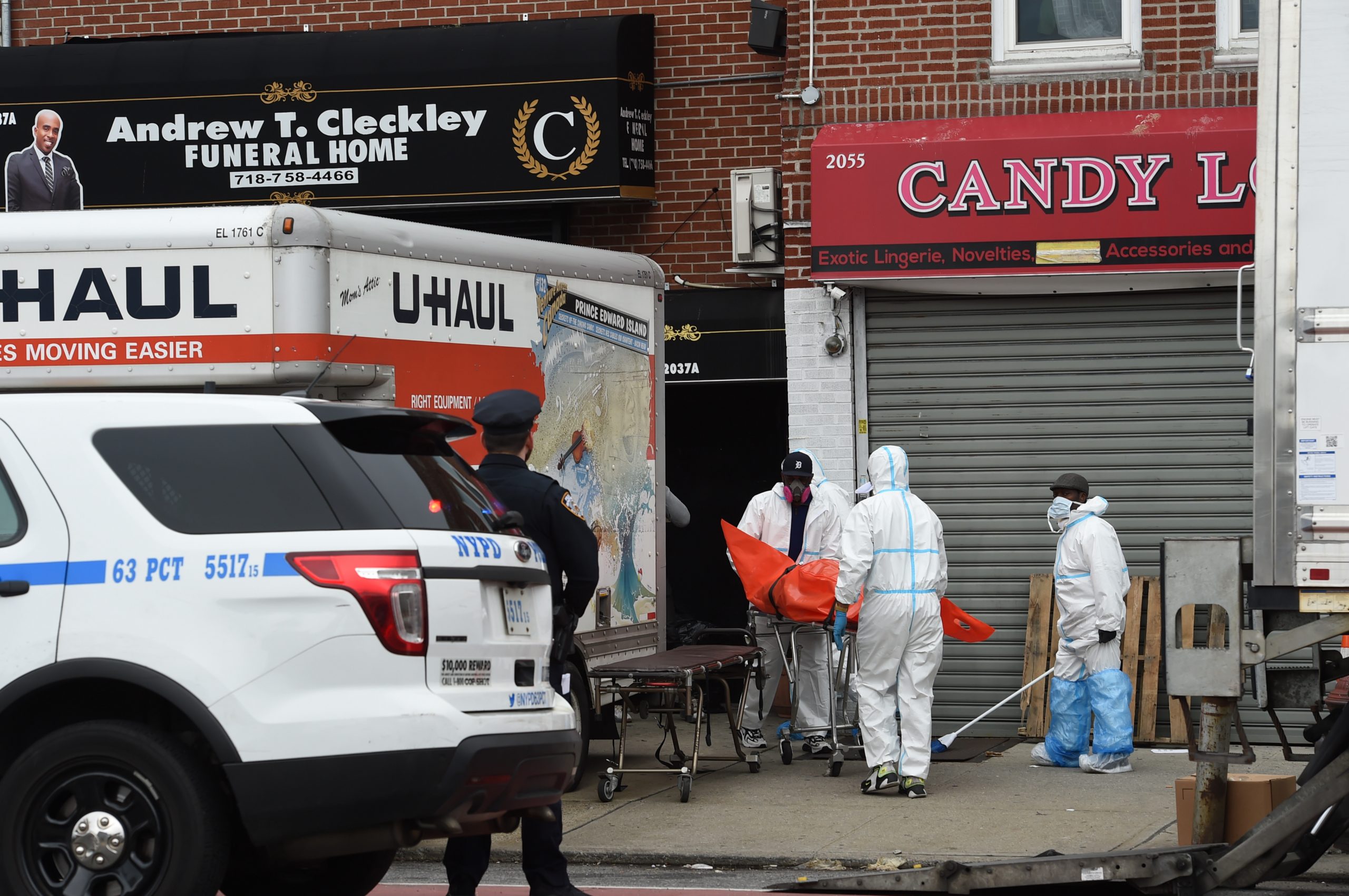
Then Williams-Davis herself became sick. Ten years later, she was also on the edge of death after contracting a rare flesh-eating disease. That was when she married her childhood sweetheart Raymond at Winthrop Hospital as doctors gave her an even-money chance of survival.
Thankfully, Williams-Davis said her bout with COVID-19 was “nowhere near as bad as her parents” or for others she knew. Her two children, ages 10 and 18, both were spared the virus.
“My first cousin passed away (Willie Mae Addison), her husband also passed away after being in a coma for four months,” Williams-Davis sighed. “Our cook was in the hospital for four months. A good friend of ours, his wife went to the hospital with what they thought was a cold and she came back in a body bag. It was a blessing that I didn’t get as severely sick. It didn’t help that others had underlying conditions.”
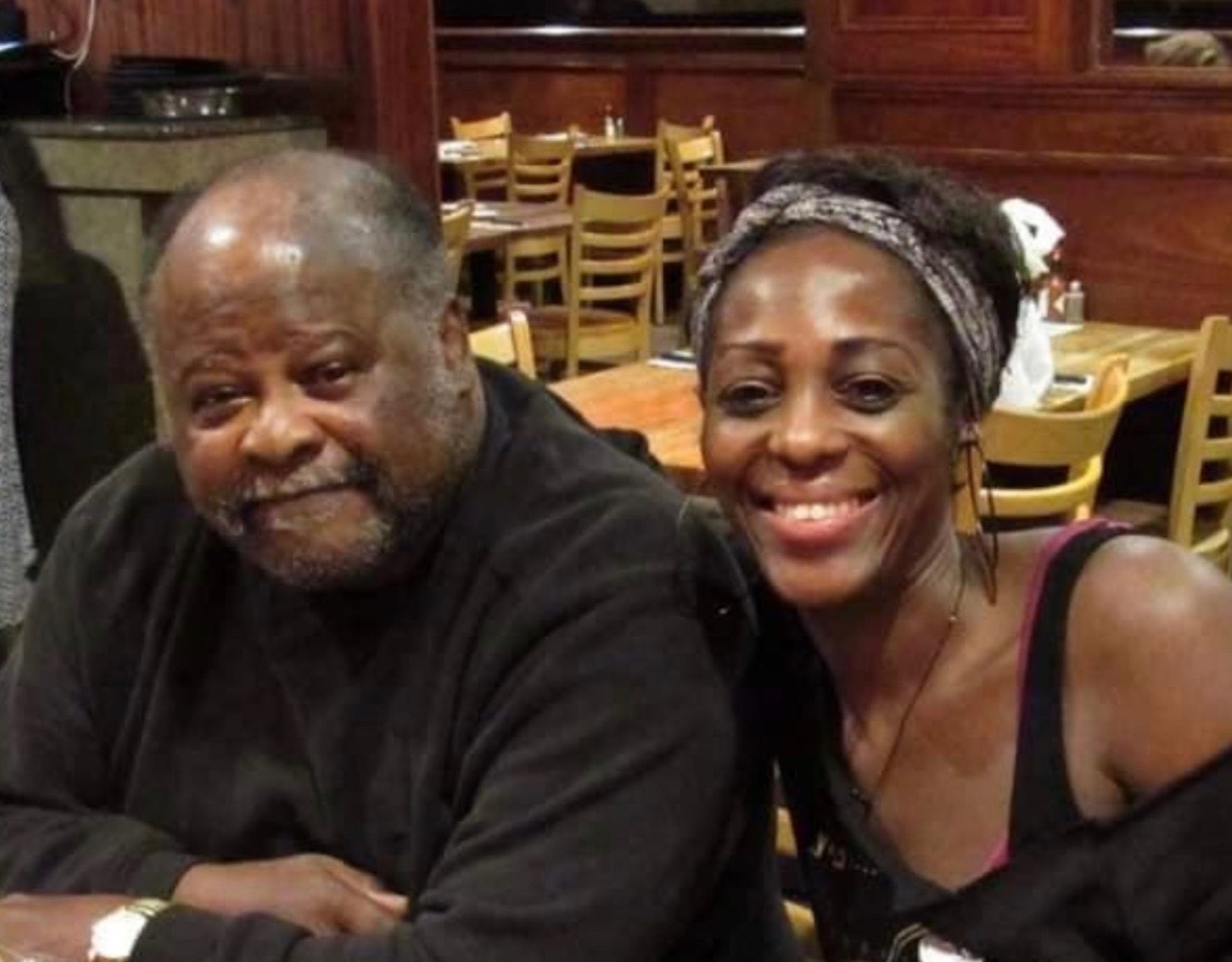
Much of the worst of the pandemic subsided for the couple and by May, and she was focused on family and restarting her business.
Innovation, perseverance at work
Williams-Davis and her husband were not going to surrender to the virus or the shut down. They were prepared to do what it takes to stay afloat.
First, they applied for and received a Payroll Protection Program grant. Next, they were able to get their landlord renegotiated the lease rather than have another empty storefront.
They rejected the EIDL loans because they didn’t want to incur any additional debt, allowing them to become economically self-sufficient without owing more money.
Prior to the outbreak, their coffee shop was becoming popular not just with the locals, but also with larger corporate clients. Their love of “coffee science” helped them to expand their services to companies such as Lyft, WeightWatchers, and Goldman Sachs. But all of that ended with the pandemic.
The husband-and-wife team then decided to move further into catering and pop-up events. Soon, they were partnering with other businesses with their small storefront to sell scented candles, clothing lines even champagne. They rented the space for six weeks for photo shoots, brand launches, and they would cater for the events.
The Bushwick Grind became the little store that could.
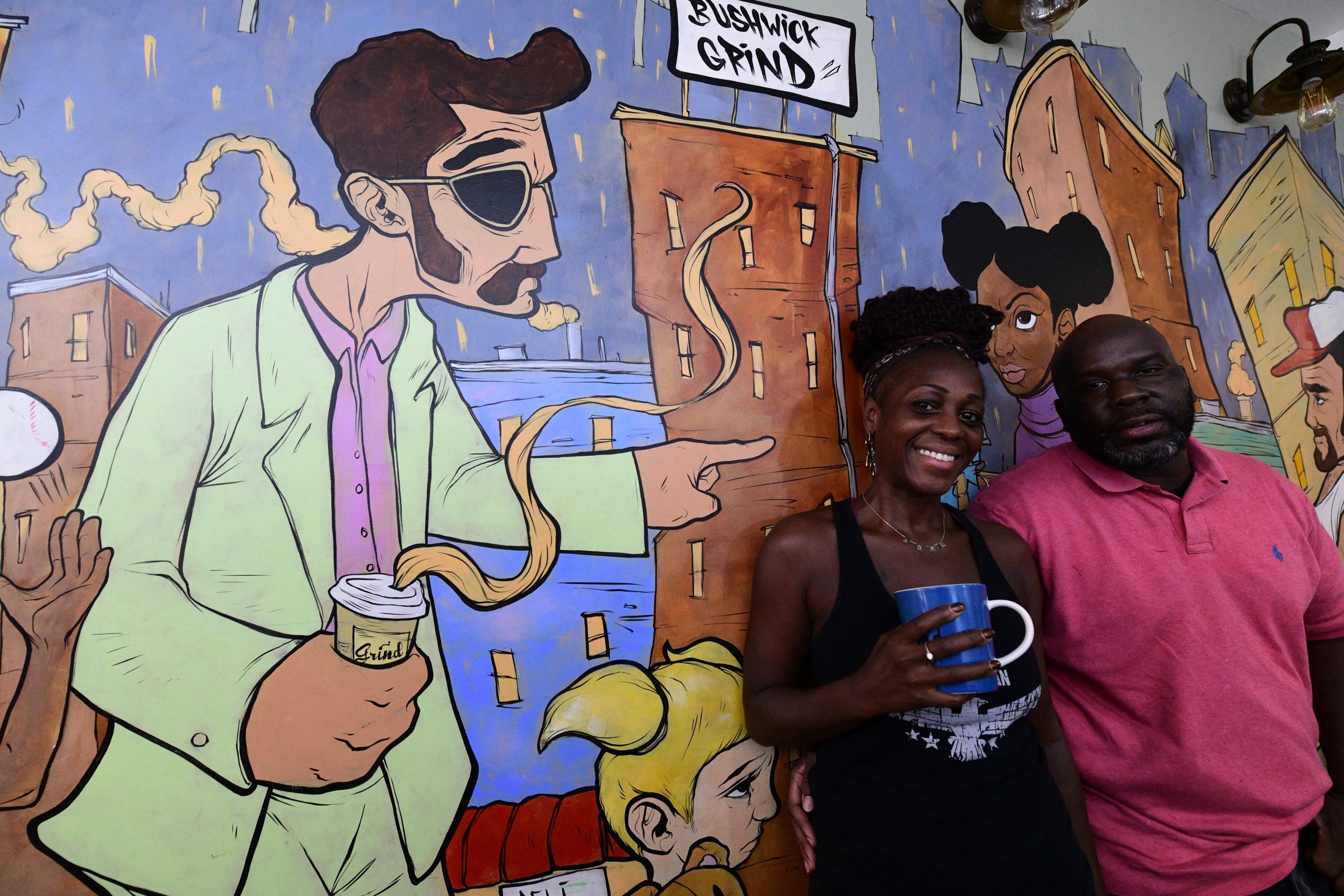
Williams-Davis began attending Southern University, a farming school, to learn about and grow healthier foods. The classes were all online, allowing her to continue running her business and being with her family.
“My family grew up picking cotton and peanuts, and on my grandmother’s farm, we helped pick vegetables and collard greens, so it’s in my DNA,” said Williams-Davis, who pointed out that her grandmother Bertha Lee Williams, “was the healthiest one in the family to the day she died.”
“Back then, the thing my family wanted me to do least is working in fields – go get an education. I didn’t really have an affinity for it,” she recalled. “We would go to the chicken coop and get some eggs, pick peas – whatever – we had to harvest and that food fed the whole family, but what it taught me was that eating well makes you stronger and healthier.”
What COVID-19 taught Williams-Davis was that her community was not eating well and many were not healthy from eating fast foods. The area of Bushwick where she has lived for 18 years has been “underserved” with fresh produce, and nutritious food is hard to come by.
Their success with the pop-up events has gained their kudos from 1010 WINS, which gave them a $10,000 grand for up and coming business. They stand to receive a $25,000 grant from Discover Card and they are crowdfunding on IFundWomen. They also hope to start serving coffee to walk-in customers in October again.
While Williams forges ahead with the business and plans to move to a larger location and serve both coffee and “healthy alternative foods to benefit her community,” her husband takes a more business-like, cautionary approach.
“For myself, we are enjoying serving the community, but in the end, it must make sense for my family make sure everything is done correctly,” Davis said. “You can look around and small businesses are closing down left and right – so yes, we have a lot of great ideas, but we must be wise about it.”
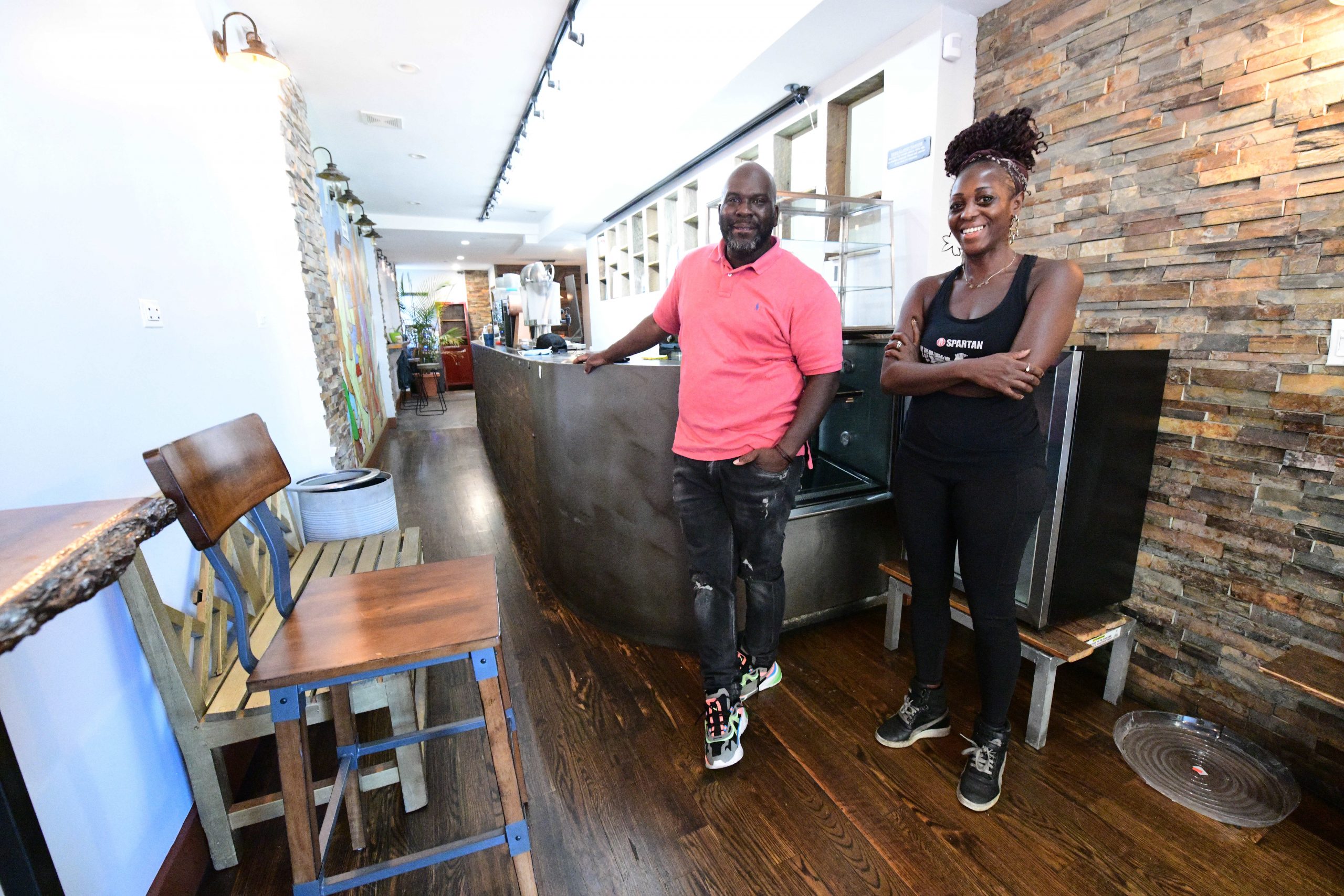
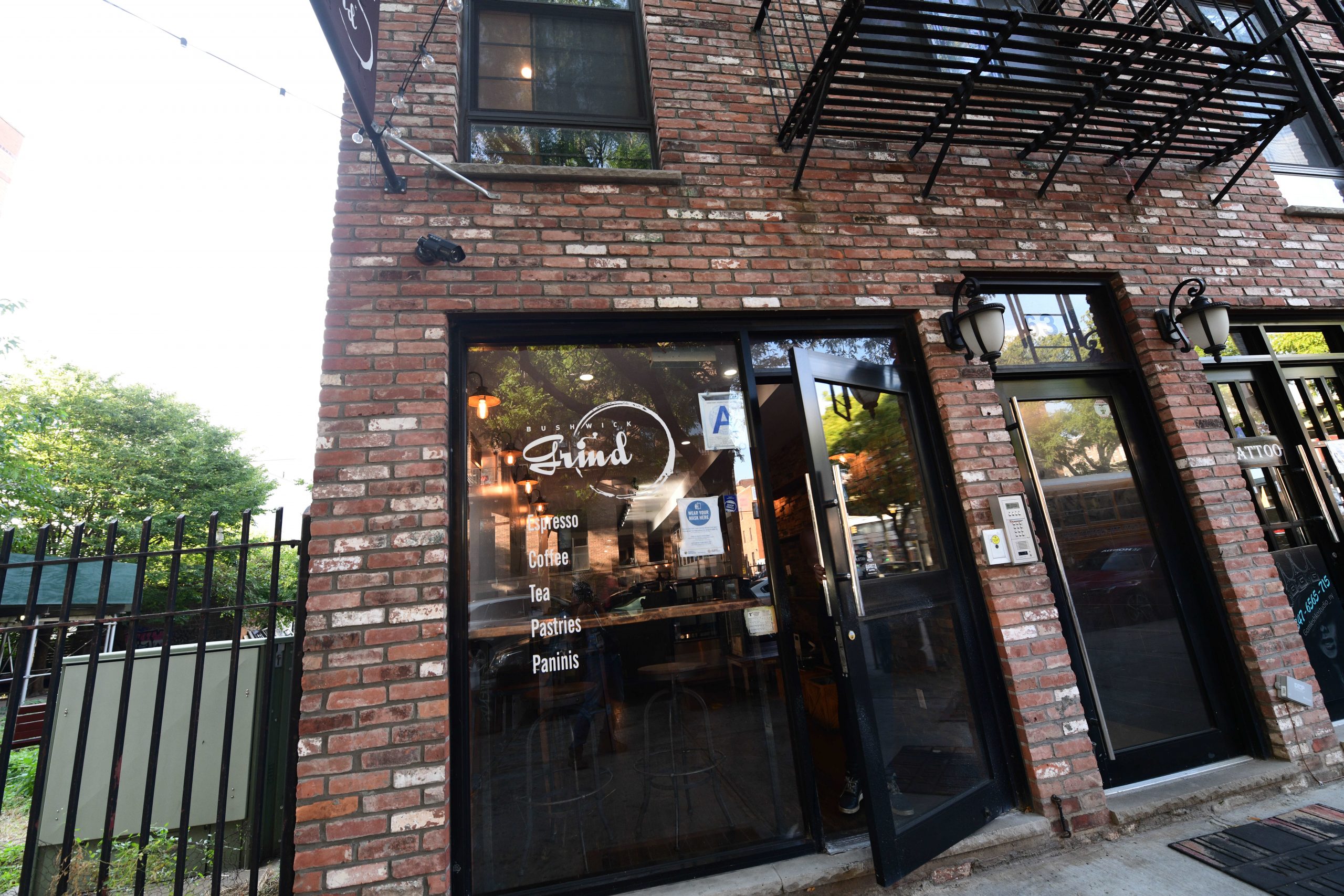
This story is part of amNewYork Metro’s “Small Business Survivors” series, an ongoing look at how New York City small businesses are working to recover from the COVID-19 pandemic. If you’re a small business owner surviving the pandemic, send us your story by emailing robb@amny.com.



